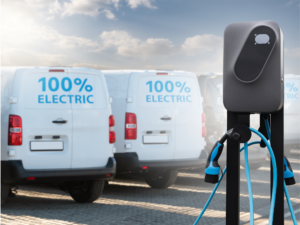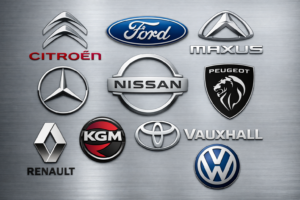Despite a challenging economic backdrop, the UK’s vehicle leasing sector is posting record-level growth, driven largely by business contract hire and salary-sacrifice schemes.
What the numbers show
According to the latest quarterly report by the British Vehicle Rental & Leasing Association (BVRLA), business contract hire (BCH) for company cars rose by 7.8 % year-on-year. Meanwhile, salary-sacrifice schemes continue to surge, climbing by an impressive 118 % over the same period.
These trends reflect a longer-term upward trajectory for both funding methods, supported by strong uptake of electric vehicles and generous incentives from both government and manufacturers.
In contrast, personal contract hire (PCH) is facing headwinds: PCH agreements fell by 7.6 % year-on-year. The proportion of PCH deals that include vehicle maintenance also dropped from 30 % in 2024 to 27 % — a sign that cost-conscious consumers are trimming optional extras.
At the end of Q2 2025, the total leasing fleet (cars and light commercial vehicles) for BVRLA members stood at approximately 1,956,594 vehicles, a 5.9 % increase year-on-year. If current growth holds, the fleet is projected to surpass two million vehicles in the next quarter — a first for the UK leasing market.
What’s driving the growth?
Several interconnected factors are fueling this momentum:
✅ Electric vehicle adoption — The rise of EVs, especially in business fleets, continues to drive leasing demand due to favourable tax and incentive treatment.
✅ Salary-sacrifice popularity — Employers are increasingly using these schemes to offer electric company cars as part of employee benefits packages.
✅ Manufacturer competition — A growing number of new brands entering the UK market, coupled with heavy manufacturer discounts on EVs, is creating a more competitive landscape that favours leasing channels.
Where it’s uneven: The challenges ahead
While the headline figures look strong, some weaknesses are emerging beneath the surface:
✅ Private buyers pulling back — Data from the Society of Motor Manufacturers & Traders (SMMT) shows that fewer than one in four new battery-electric vehicles (BEVs) are purchased by private buyers. BEVs accounted for less than 14 % of all private new-car sales in the first half of 2025.
✅ Van leasing under pressure — The light commercial vehicle (LCV) leasing market contracted by 6.7 % year-on-year. Many operators are delaying new agreements or extending existing ones, as high vehicle prices and the push to include electric vans in large orders make new deals less attractive.
✅ Residual value concerns — As the used-electric-vehicle market grows, leasing companies face challenges with residual values. Many have revised forecasts downward, which has pushed up rental costs for new customers.
Newer EV models with longer ranges and updated technology are proving far more desirable than early-generation stock, adding further complexity to the used-EV market. Manufacturers, meanwhile, are investing heavily in discounts to meet zero-emission vehicle (ZEV) targets and maintain market share.
Industry insight
BVRLA chief executive Toby Poston summed up the current situation:
“The headline numbers show the leasing fleet is in rude health.
Financial uncertainty causes businesses and households to delay decisions or pinch their purse strings. To see the overall fleet grow in the face of that is a testament to what can be achieved when targeted support enables the right products to be available at the right price.”
In short, the sector’s resilience stands out against a backdrop of economic caution — but the success is not evenly spread. The industry still faces big questions about affordability, charging infrastructure, and long-term electric-vehicle values.
Key takeaways for drivers and businesses
✅ Business fleets: Leasing remains a robust channel, particularly for EVs. BCH and salary-sacrifice schemes continue to deliver strong value under current tax incentives.
✅ Private drivers: Personal leasing is under strain as economic pressures mount, and new EV purchases by individuals remain limited.
✅ Van operators: High upfront costs and uncertainty around electric van performance and charging are making many operators cautious. Extending existing leases may remain common in the short term.
✅ EV market outlook: Residual-value risk will be a defining factor. The used-EV market needs to mature to stabilise new-lease pricing.
✅ Overall: The UK leasing sector shows remarkable strength — but maintaining momentum will require balancing affordability, supporting infrastructure, and managing financial risk as the market electrifies.
Drive cleaner, smarter, and more affordably
Whether you’re a business owner looking to reduce your carbon footprint or a fleet manager seeking a cost-effective, future-proof solution, electric cars deliver unbeatable advantages:
✅ Lower running costs — Save on fuel, tax, and maintenance
✅ Zero emissions — Comply with clean air zones and sustainability goals
✅ Government grants — Benefit from up to £3,750 off eligible models
✅ Expanding charging network — Over 86,000 public chargepoints nationwide
With advances in battery technology and more affordable models than ever, there’s never been a better time to go electric.
Interested in leasing an EV? Call us on 01424 863456 to explore your options, or check out our latest electric car lease deals for the best offers.




 Huge range of lease vehicles: Choose from a diverse
Huge range of lease vehicles: Choose from a diverse  Call our expert team on
Call our expert team on







